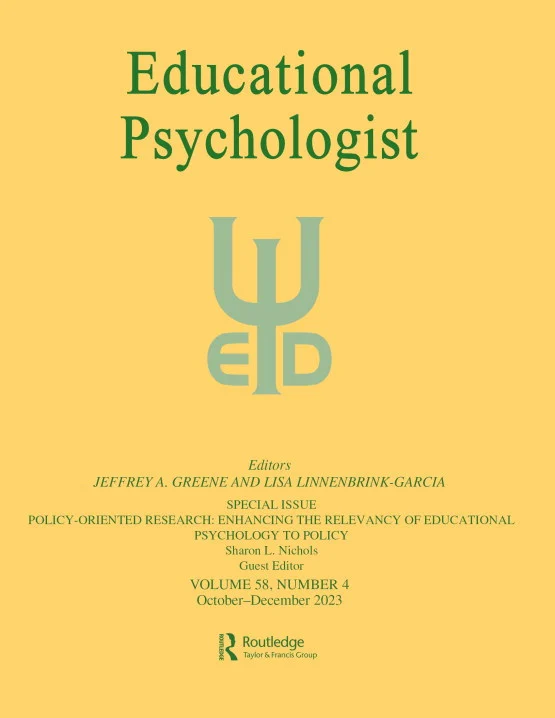Teachers need more than knowledge: Why motivation, emotion, and self-regulation are indispensable
IF 11.4
1区 心理学
Q1 EDUCATION & EDUCATIONAL RESEARCH
引用次数: 18
Abstract
Abstract It is plausible to assume that teachers need motivation, emotions, and self-regulation to teach and promote students’ learning. However, as documented in this special issue, extant research is inconsistent and has documented weak effects of these teacher variables at best. I discuss possible reasons for this paradoxical failure to more fully document the importance of motivation, emotion, and self-regulation. Specifically, in addition to conceptual problems, research has focused too much on using between-person designs, variables with truncated distributions and reduced variance, and samples from single Western countries. To better understand the effects of teacher variables on student outcomes, we need to (1) develop and test more fine-grained theoretical models explaining the mechanisms mediating these effects, (2) complement between-teacher research by within-teacher studies, and (3) examine teacher-student processes across cultural and historical contexts. Collaboration with other disciplines may be needed, including economics, sociology, political science, computer science, and history.教师需要的不仅仅是知识:为什么动机、情感和自我调节是不可或缺的
教师需要动机、情感和自我调节来教授和促进学生的学习,这是合理的假设。然而,正如本期特刊所述,现有的研究是不一致的,并且最多记录了这些教师变量的微弱影响。我讨论了这种自相矛盾的失败的可能原因,以更充分地证明动机、情感和自我调节的重要性。具体来说,除了概念问题外,研究还过多地关注于使用人与人之间的设计,截断分布和减少方差的变量,以及来自单个西方国家的样本。为了更好地理解教师变量对学生成绩的影响,我们需要(1)开发和测试更精细的理论模型来解释这些影响的中介机制,(2)通过教师内部研究来补充教师之间的研究,以及(3)在文化和历史背景下检查教师与学生的过程。可能需要与其他学科合作,包括经济学、社会学、政治学、计算机科学和历史。
本文章由计算机程序翻译,如有差异,请以英文原文为准。
求助全文
约1分钟内获得全文
求助全文
来源期刊

Educational Psychologist
Multiple-
CiteScore
19.10
自引率
3.40%
发文量
16
期刊介绍:
The Educational Psychologist is a scholarly journal dedicated to exploring the psychology of learning and instruction. Articles in this journal encompass a diverse range of perspectives, from examining psychological mechanisms to exploring social and societal phenomena related to learning and instruction. The journal publishes theoretical and conceptual articles, as well as reviews and meta-analyses, that significantly contribute to theory or advance the methods used to explore educational psychology. Emphasizing innovation and advancing understanding, the journal does not publish articles solely reporting the methods and results of empirical studies; instead, all submissions, including reviews and meta-analyses, must offer clear implications for advancing theory. In addition to regular articles, the journal features special issues that delve into important themes in educational psychology, along with focal articles accompanied by peer commentary.
 求助内容:
求助内容: 应助结果提醒方式:
应助结果提醒方式:


